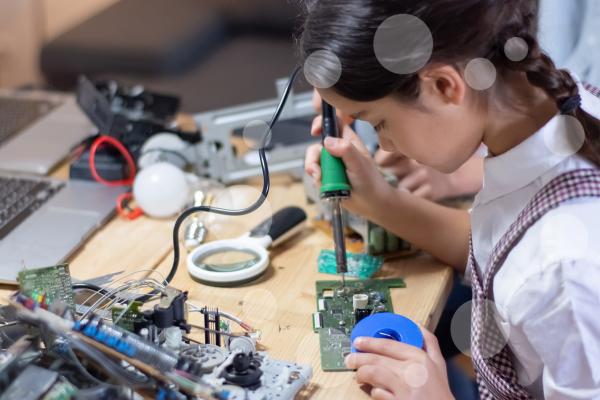Education and training are the foundations of personal, societal and economic growth. At European level, skilling, reskilling and upskilling start with formal schooling and continue throughout people’s lives in the form of lifelong learning, non-formal, or informal learning, defined as the on-going access to the renewing of skills and the acquisition of knowledge.
With the aim to improve access to quality education for all, five focus topics underpin the work:
- improving quality and equity in education and training;
- teachers, trainers and school leaders;
- digital education;
- green education; and
- the European Education Area in the world.
JRC employs a combination of qualitative and quantitative methodologies to inform and support policy on education and training and contributes to the Education and Training Monitor, an annual analysis of how education and training systems evolve across the EU. JRC also supports the implementation of the Digital Education Action Plan (2021 - 2027) through various projects. Some of these are conducted in collaboration with other international organisations (OECD, IEA, ETF, UNESCO).
The JRC provides new insights and knowledge on education and training in several research areas:

The JRC develops and supports implementation of a range of competence frameworks and tools as well as tools to support schools’ and educators’ digital competence development and evaluation.

The JRC research programme supporting the digital transformation education covers a range of topics designed to support the implementation of the Digital Education Action Plan 2021-2027, the Digital Decade Policy Programme, and the 2020 European Skills Agenda.

The JRC makes substantial contributions to the study in international student mobility, e.g. on inequality in the access to study-abroad programs or evaluation of the effects of those programs on earnings post-graduation.

The JRC works on development of indicators of educational inequality at the EU level and does substantive research on socioeconomic gaps in learning outcomes.

The JRC analysed the impact of COVID-19 confinement measures on schooling, learning loss, the employment impact of sector closures, and the impact of remote work on working conditions.
These diverse research activities are conducted by a multidisciplinary team of researchers under the portfolio on Education, skills and jobs, which also covers Employment, tasks, and occupations, Skills and Competences, and Social classes in the digital age (DIGCLASS).
Related activities
- Social classes in the digital age (DIGCLASS)
- Employment
- Skills and competences
- Related, recent research papers and reports



